The B-strain of meningococcal disease has caused the most cases of the infection in New South Wales this year but a vaccine for the illness still isn’t eligible for federal funding.
NSW Health has revealed 15 of the 21 cases to date this year were meningococcal B.
It comes after NSW Health issued a warning this week encouraging the public to be aware of symptoms.
In a statement on Thursday, NSW Health said the vaccination was the best way to protect against meningococcal.
It advised an injection that protected against the A, C, W and Y, types of the disease was available on the National Immunisation Program for infants aged 12 months and teenagers in Year 10.
Any adolescents aged 15 to 19 years who missed the vaccine in school are also eligible for a free vaccine from their GP.
Yet despite this, a second vaccine for meningococcal B strain continues to fail Federal Government requirements for inclusion on the National Immunisation Program.
A NSW Health spokeswoman said the federal Pharmaceutical Benefits Advisory Committee (PBAC) had assessed the meningococcal B vaccine three times and had determined it didn’t meet funding criteria.
“Meningococcal B is more prevalent in South Australia than in any other jurisdiction in Australia and there have been higher rates of severe outcomes, including death, associated with meningococcal B in SA than in NSW.
“NSW Health will continue to closely follow the pattern of meningococcal B disease in NSW and respond based on the best available evidence.”
A federal Department of Health spokeswoman said the PBAC last considered an application for the listing for GlaxoSmithKline’s meningococcal B vaccine, Bexsero, in July 2015.
“The PBAC is required … to give consideration to the effectiveness and cost of immunisation involving the use of the vaccine, including by comparing the effectiveness and cost of immunisation involving the use of the vaccine with alternative options,” she said.
Meningococcal B now a national problem: expert
National Centre for Immunisation Research and Surveillance clinical research head Professor Robert Booy said it was clear the disease was no longer just prevalent in South Australia.
The meningococcal B strain was now the most common strain of illness diagnosed in people under 25, he said.
Professor Booy, who has provided unpaid advice to the makers of the B vaccine, said there had been past concerns about the vaccine which had improved with time.
“One of those concerns was whether the vaccine was effective; it’s now been used in the UK for four years and they’re showing real impact on disease rates.
“One of the major concerns was, did the vaccine actually work and the UK appear to be showing good data in that regard.”
The ABC understands the makers of the vaccine, GlaxoSmithKline, will make a fourth application in coming months with the extra prevalence data.
Of the other cases in NSW to date this year four cases were the W strain and two were the Y strain.
Meningococcal is a rare but serious illness that can kill within hours.
Symptoms include nausea, vomiting, neck stiffness, joint pain, light sensitivity, a sudden fever and a rash of red-purple spots.
NSW Health Communicable Diseases director Dr Vicky Sheppeard said it was spread by secretions from the nose and throat of a person who was carrying the bacteria.
People needed to be in close and prolonged contact to pass it on, she said.
“It more commonly occurs in people aged between 15-24 years, as they tend to be involved in more intimate social activities such as kissing, and children aged under 5 years, but it can affect anyone,” she said.
Cases normally start to increase towards the end of flu season when people’s immune systems are weaker from viruses.
SOURCE: ABC
